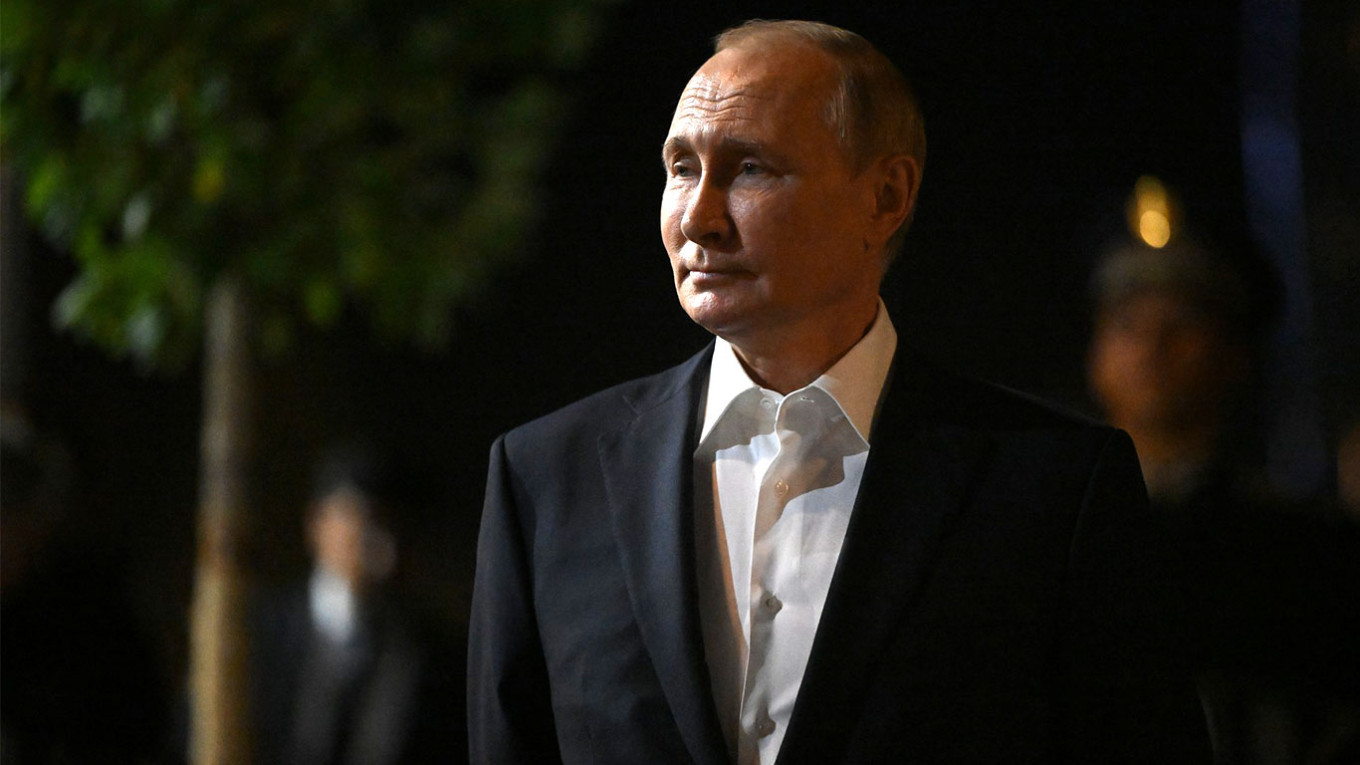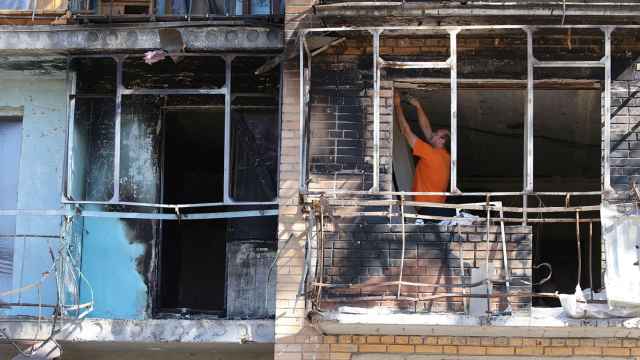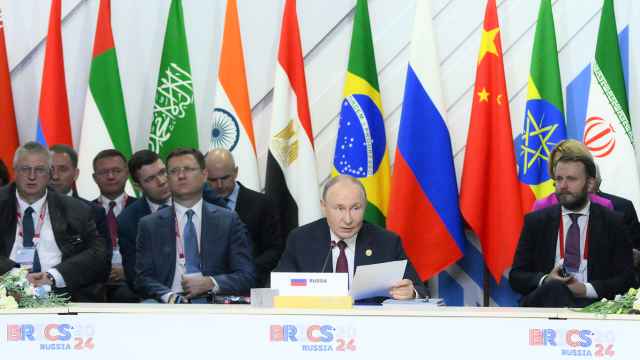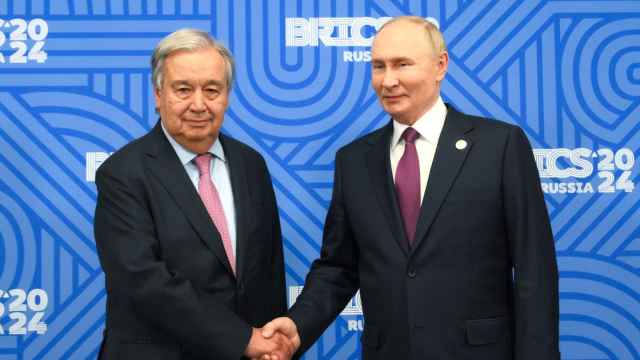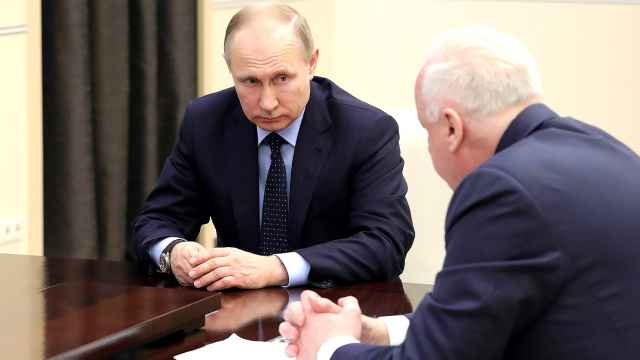After seven months of war with Ukraine, Russian President Vladimir Putin has declared mobilization and is poised to annex four occupied Ukrainian regions after staged referendums. When it comes to the West, Putin has insisted he is not bluffing over threats of nuclear war.
Although mobilization has been on the cards since the start of the war, the Russian elite is now in a state reminiscent of that seen last on Feb. 24 when the invasion began. The war is no longer a thousand kilometers away from Moscow — relatives, friends, and colleagues are being called up and sent to the front. The Russian establishment is panicking and trying to save their loved ones from the draft.
The Russian elite claims very few in their ranks support the war. Seven months on from the start of the fighting, however, there are no visible signs of dissent. On the contrary, those ideologically opposed to Putin’s actions in private are still helping him transform the economy into one capable of sustaining a protracted war. And they are minimizing the adverse effects of the war and Western sanctions on the Russian population — thereby bolstering support for the regime.
Over the last few weeks, we have spoken to 15 civil servants, parliamentary deputies, and executives at public and private companies. More than half were senior managers. All of our sources in the elite — who all spoke on the condition of anonymity — said the military conflict will only escalate in the coming months. Yet none can predict what will happen if Russia loses.
Awaiting a catastrophe
At the start of this month, the situation at the front started changing dramatically. For the first time since the beginning of the war, the Ukrainian Armed Forces launched a massive counteroffensive, reclaiming major settlements in the Kharkiv region – Izium, Balakliya and Kupiansk. As a result, Kyiv regained control of almost the entire Kharkiv region, in many places advancing up to the Russian border.
The Russian army’s most significant defeat since the start of the war dramatically changed the situation inside Russia. Our sources said the Ukrainian offensive compelled the Kremlin to announce mobilization and rush through referendums on the annexation of the Donetsk, Luhansk, Kherson and Zaporizhzhia regions.
Putin cannot lose so he needs to urgently turn the situation around, explained one source close to the Kremlin.
“Have some of that, you Nazis,” said the source, explaining Putin's logic with grim irony and highlighting that the referendums are an excuse to justify mobilization. The threat of nuclear war is a message to Western politicians, according to the source. “The message is: don’t forget, Ukraine does not have the right to defeat us. By supplying weapons, you are only delaying Ukraine’s demise.”
Almost all of our interviewees said they could see mobilization coming. “It was obvious the military needed more men. And it was clear the announcement would come after the [local] elections. And after the vote, it all happened,” recalled a high-ranking federal official.
One source who regularly attends meetings in the Kremlin described the events as follows: “The Ukrainian offensive finally gave the generals an excuse to push through the decision to mobilize. Everywhere the generals voiced the need for more resources. They called for a critical mass of boots on the ground. It's like when renovating a house. Initially, the workmen promise to do everything on time and with the available resources, and then something goes wrong, and they tell you: ‘Well, what did you expect? We don’t have this and that.’ The generals pulled the wool over our eyes.”
Although many of our sources foresaw mobilization, most complained of Putin’s rashness and reluctance to explain his plans. “No one explains anything to anyone,” said one disgruntled source close to the government. And the head of a state-owned bank said he was extremely concerned that Russia’s leader takes all decisions exclusively without consultation.
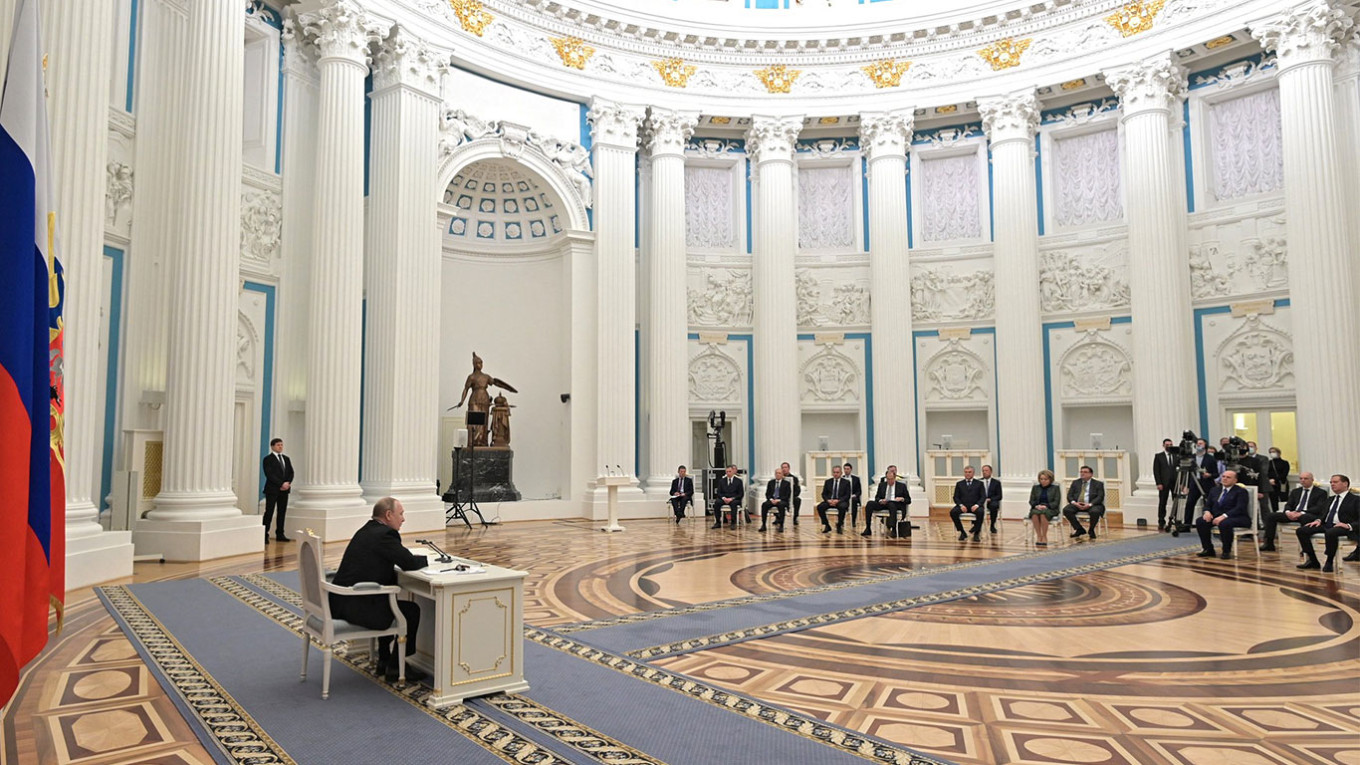
“There is a total lack of coordination; it’s a mess. Putin tells everyone different things,” said a source close to the government. He said this applies not only to the economy but also how the war is run. “What were we doing in Kharkiv? No one has a clue – neither politicians nor the military. It just happened!”
At the same time, the authorities prepared for mobilization in advance: laws permitting the government to put the economy on a war footing were passed by the State Duma in the spring. And many warmongers have been calling on authorities to declare mobilization for weeks, if not months. On his talk show, propagandist Vladimir Solovyov has regularly made such appeals.
Putin himself likely expected his subordinates to be more prepared for the mobilization as shown by the fact he took a short period of leave after its announcement. The president managed to sneak away from public duty for a while (covering his absence — as usual — with pre-recording meetings with various officials and heads of state-owned firms). Our sources said that Putin planned to rest at his Valdai residence; yet, four days later, he met Belarusian President Alexander Lukashenko at his Sochi residence (also a great place for a vacation).
But Putin is having a hard time relaxing. On the third day of his break, problems with mobilization meant he had to sack his deputy defense minister in charge of logistics and sign a decree excluding students from being called up.
Dodging the draft
Recent days have seen managers from government agencies as well as public and private businesses scrambling to find ways to protect their employees from conscription.
When we interviewed our contacts last week, none expected the “partial” mobilization to have such an indiscriminate effect. At the same time, few believed things would end with “partial” mobilization.
“The 300,000 [reservists that Defense Minister Shoigu said would be mobilized] are just a distraction. Now it’s partial, but then there will be mass mobilization, and after that tactical nuclear weapons," predicted one source close to the government.
The government has been actively trying to stem the flight of programmers and tech managers from Russia. But it’s not just IT companies that are compiling lists of people for exemptions. An executive at one major company described the process: “Companies send lists to the Defense Ministry via their industry-specific ministries who then pass them down to the conscription officers.”
Officials are getting exemptions using a similar scheme. One mid-level federal official described how managers send lists of employees for exemption to the Defense Ministry. He admits that the process is not yet properly established, and many who have been called up are trying to escape by showing their civil service ID.
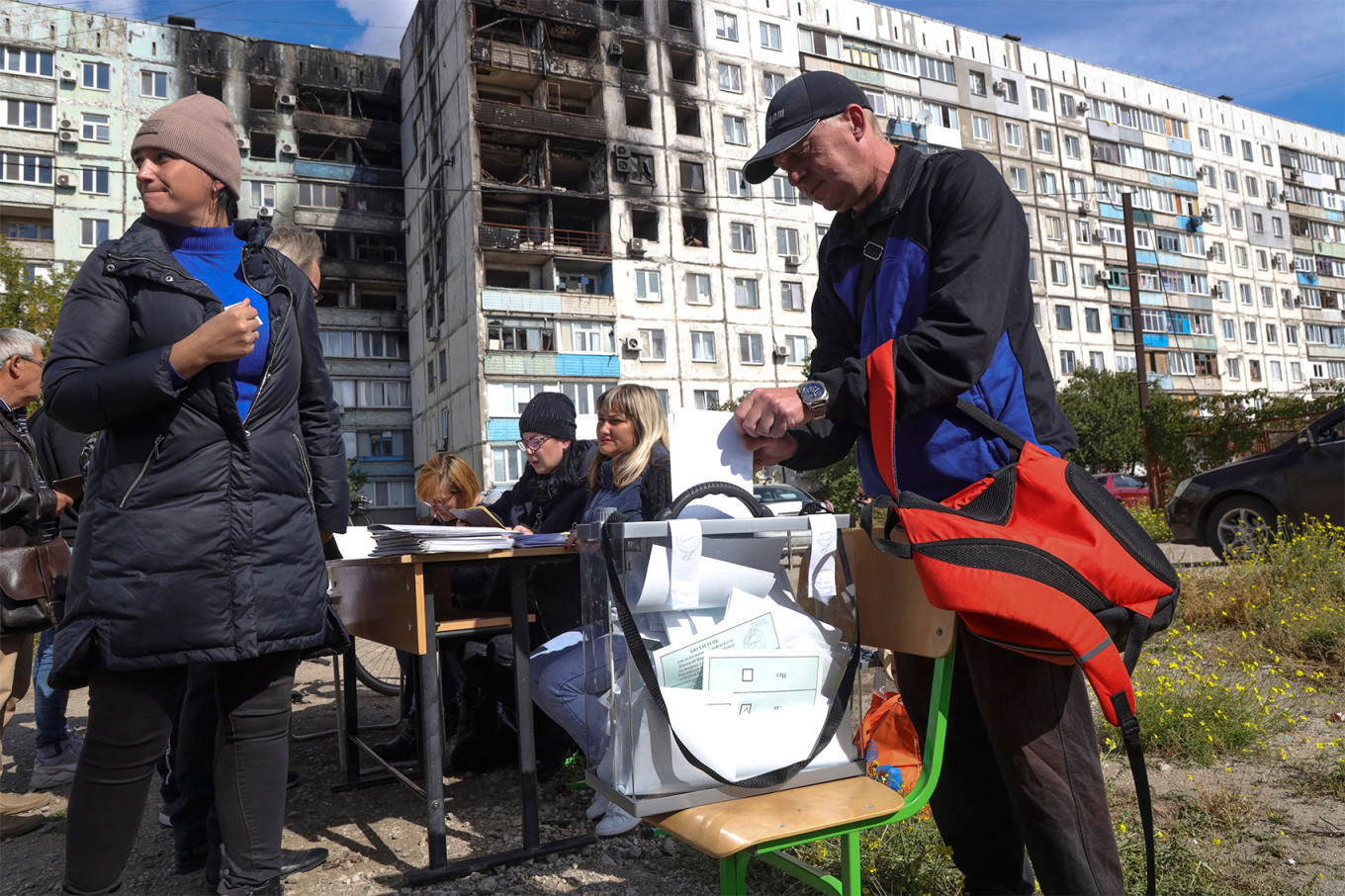
Exemptions for officials, parliamentary deputies and employees of state-owned companies do not extend to their families. Those with male relatives of conscription age have no get-out-of-jail-free card. Our sources tell us that many public officials have already bought plane tickets for their brothers, sons and nephews and sent them abroad. Some have already seen their relatives called up.
However, not everyone can negotiate their relatives an exemption or ship them out of the country. “What if somebody finds out? I will be declared an enemy of the motherland and jailed. The fear is palpable, people are in shock and constant anxiety,” said one source close to the government.
There has been a hundredfold increase in demand for private jet seats since the mobilization announcement, The Guardian reported this week. A single ticket costs up to 1.5 million rubles ($25,851). The Guardian also reported that the son of a “prominent State Duma deputy,” who regularly spouts anti-Western rhetoric, flew to Istanbul on Sept. 24 because of mobilization. Apparently this deputy personally escorted his son to the airport to ensure he would be allowed out of the country.
At the same time, there are also those in Putin’s elite who are ready to fight. One of our sources assured us that he will go to the front if necessary. He explained the motives for his decision as a sense of duty (“What, run away like a coward?”) and the need to “rid Ukraine of Nazism.” Several deputies, senators and regional parliamentarians have publicly announced their intention to go to the front.
Russian society is polarized in its attitudes to the war, according to the head of one state-owned company: “We have people with polarized opinions even within the same organization. Some are totally against everything, whilst others want to set up their own private military groups.”
The Kremlin is preparing for a protracted war
Despite the war and mobilization, the daily grind at Russia’s ministries and departments continues. Officials write laws, legislation and attend meetings. They are also coming to terms with how to adapt the economy to wartime conditions.
A clear indication the Kremlin is preparing for a protracted war is the draft budget for 2023-2025. This shows that spending on the Russian army this year will amount to almost 5 trillion rubles ($86.2 billion), not the 3.5 trillion originally planned. In subsequent years spending will also exceed forecasts. At the same time, the Kremlin is increasing expenditures on the police, apparently fearing opposition protests.
“We are transitioning into a wartime economy. Everything related to development — infrastructure, education, health — is taking a back seat,” explained a source in the Finance Ministry. He said there is no point in looking at budget figures for 2024-2025, because the situation is evolving so rapidly at the moment.
“By now, everyone is on edge, and it is clear the war will not end soon,” said the source, who regularly attends meetings in the Kremlin.
“Putin always chooses escalation. And he will continue to choose escalation at any unpleasant juncture, up to and including nuclear weapons,” predicted another source close to the Kremlin who has worked with Putin for many years.
Everyone for themselves
Despite awareness of the impending catastrophe, nobody in Russia’s elite has tried to persuade Putin to stop the war for a long time. Whereas in the early months, figures like Alexei Kudrin, head of the Audit Chamber, tried to explain to Putin the consequences of his decisions, this is not happening today. According to our sources, Putin still repeats the mantra about Russia being surrounded by enemies and the machinations of NATO. Talking to him is pointless.
Everyone is adapting. The very same Kudrin is busy negotiating with the Kremlin over the partition of Russia’s biggest IT company, Yandex (its billionaire owner Arkady Volozh wants to spin off drone technology, cloud storage and education). If Kudrin gets the Kremlin to agree to the deal, he will get a stake in Yandex worth about $300 million — a very dubious arrangement in terms of corruption law.
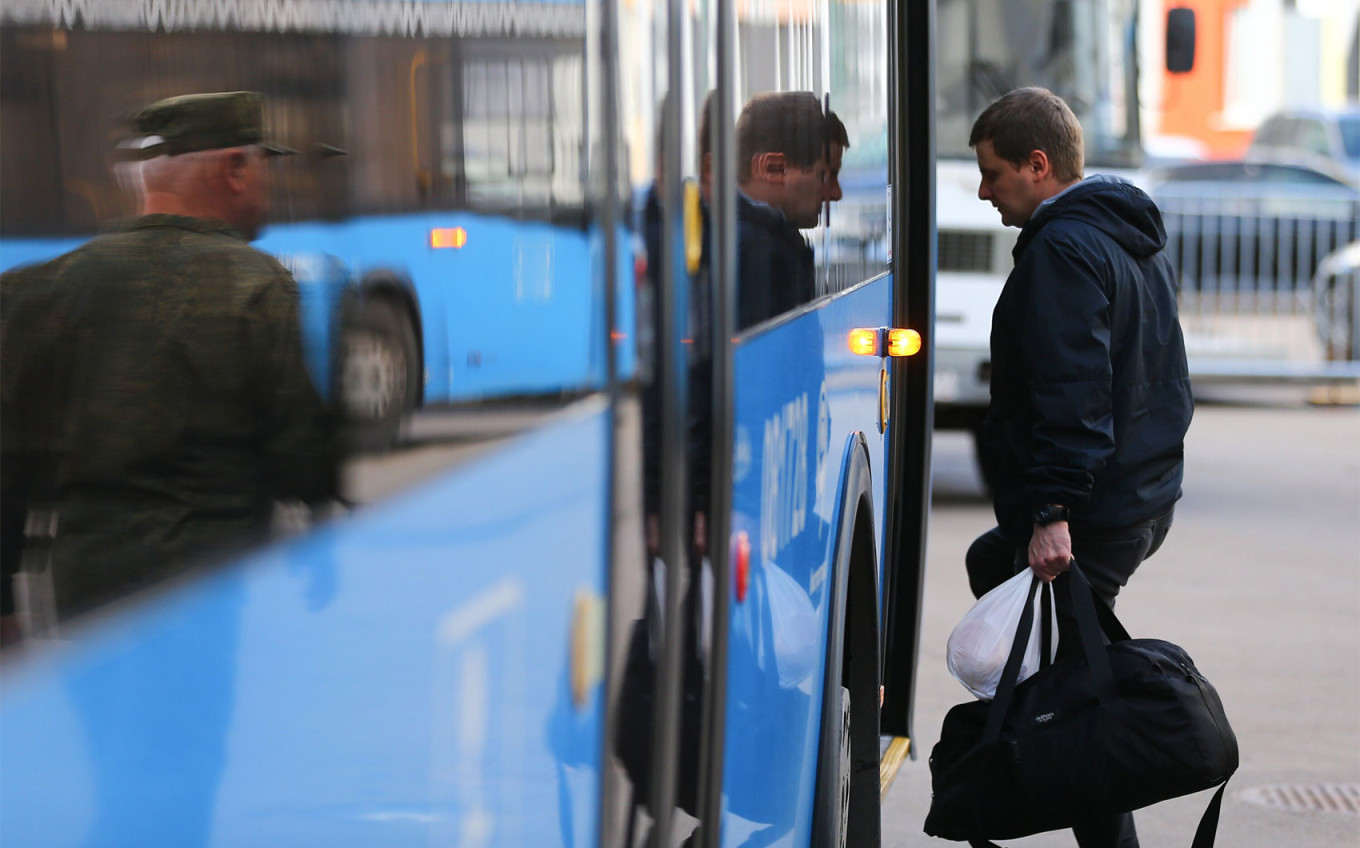
All the government’s so-called “economic liberals” — Central Bank head Elvira Nabiullina, Finance Minister Anton Siluanov, head of Sberbank German Gref and others — have done everything they can to prevent the collapse of the Russian economy. Conservatives in both the elite and the general population criticized these people for years for being too obsessed with Western market principles, but, since the start of the war, not one of them has shown sign of disagreement with Putin. At the same time, you have to remember, when passing judgement on them, that one of their members — top university head Vladimir Mau — was almost jailed this summer.
Our sources were confident that the mobilization announcement makes the prospect of any expression of discontent among the elite less likely. It seems that only one person in the higher echelons of power – Constitutional Court judge Konstantin Aranovsky – realized the disastrous consequences of the move to annex occupied Ukrainian land and decided to resign earlier this week.
There is little sincere support for the war in the Russian establishment, according to an executive at a major private company who knows Prime Minister Mikhail Mishustin. “All these officials making comparisons with World War II in public are only doing what is expected of them. It’s their defense mechanism. There used to be those officials that said they had a ‘boss’ [an informal term for Putin], and he would unify society. Now everyone understands that this is not the case,” he said.
“Everyone’s mood is similar to that expressed by [Putin’s deputy chief of staff Dmitry] Kozak at the Security Council before the war,” the source added. He described how there was a lot of tension over the war among his employees. But, he said, they have stopped wondering “how could this have happened?” and are now trying “to somehow manage within the stated red lines.”
“It’s a problem in Russian society that we're always trying to find a way around a bad situation rather than protesting against it,” he said.
Another manager at a major state-owned company characterized the mood as one of “impending doom.” The source, who described his own return from summer vacation as “a return to prison,” said: “People are ready to lead their children, husbands and sons to the slaughter. It’s downright evil… People don’t need therapists anymore; they need psychiatrists.”
There was one telling incident at the recent Eastern Economic Forum in Vladivostok in early September that was attended by Putin. On the first day, “everyone got really drunk,” which, apparently, led to a lot of absent speakers at the morning sessions. “It was reflective of how everyone was feeling,” said one forum participant.
When you ask those within the elite who are opposed to the war why they don’t resign, many concede that it is technically possible.
“You can buy a one-way ticket out of the country. But then what? Where do you go? What do you do? You can't take more than $10,000 with you,” said one high-ranking official close to the government.
Family, real estate and money hold many back. According to recent statistics, the average official’s monthly salary in 2020 was 147,000 rubles ($2,542) and salaries in the Kremlin and government were about 250,000-300,000 rubles (of course, there are lots of informal ways of topping up your salary). “There’s a lot of money in the public sector right now. State companies offer top executives from departed Western companies salaries 1.5 to 2 times higher than what they received previously. Plus a signing-on bonus,” said one former federal official.
Despite the evidence to the contrary, many people continue to believe the war will soon be over. “Even now, people try to think that this is all temporary. Things are escalating now, and that's good because it means it will all be over sooner,” said one source at a large private company who rubs shoulders with top officials.
Yet some people are leaving. They leave quietly when they have put all their affairs in order — withdrawn money and made arrangements for their property. Obtaining foreign residency permits takes time. “It’s fashionable now to get Israeli citizenship. People are also moving to Southeast Asia,” said one individual close to the government who knows many people who have gone abroad.
The government officials we interviewed — both supporters of the war in Ukraine and those internally opposed to it — found it difficult to state the ultimate goal of the war and its possible outcomes. “It’s clear we have to win. This is the only possible option. We need to do everything to make sure this happens, and we need to do it now. This train is already running and we are in it; there are only two ways of getting out,” said one top official.
When asked what would happen if Russia lost, our source replied that he could not imagine such a scenario. As with our other interviewees who support the war, he only reiterated the narrative spouted by propagandists: the West wants to destroy Russia, and defeat in a war with Ukraine would mean Russia’s demise.
A Message from The Moscow Times:
Dear readers,
We are facing unprecedented challenges. Russia's Prosecutor General's Office has designated The Moscow Times as an "undesirable" organization, criminalizing our work and putting our staff at risk of prosecution. This follows our earlier unjust labeling as a "foreign agent."
These actions are direct attempts to silence independent journalism in Russia. The authorities claim our work "discredits the decisions of the Russian leadership." We see things differently: we strive to provide accurate, unbiased reporting on Russia.
We, the journalists of The Moscow Times, refuse to be silenced. But to continue our work, we need your help.
Your support, no matter how small, makes a world of difference. If you can, please support us monthly starting from just $2. It's quick to set up, and every contribution makes a significant impact.
By supporting The Moscow Times, you're defending open, independent journalism in the face of repression. Thank you for standing with us.
Remind me later.




